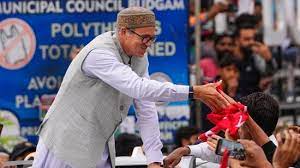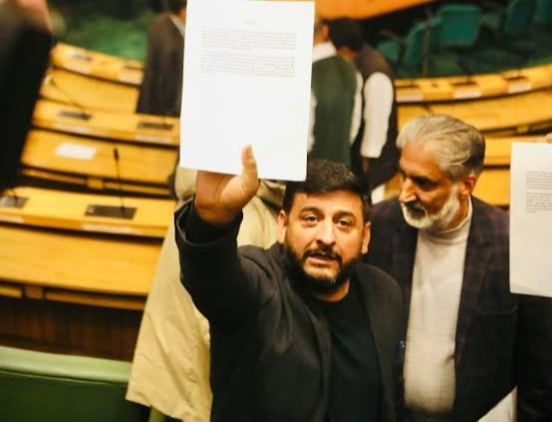“Restoration of Statehood shall take place at the earliest and as soon as possible,” a Constitution Bench had told the Union government.
The call for restoration of Statehood to Jammu and Kashmir by the National Conference, which is staking claim to form the new government in the Union Territory, is backed by a Supreme Court judgment.
“Restoration of Statehood shall take place at the earliest and as soon as possible,” a Constitution Bench headed by Chief Justice of India D.Y. Chandrachud had directed the Union government in a judgment in December 2023.
The judgment, which upheld the abrogation of Article 370 of the Constitution, had recorded the Union government’s repeated assurances in court that “the Statehood of Jammu and Kashmir would be restored in the near future upon elections being held”.
Solicitor General Tushar Mehta, appearing for the Union government, had made it clear to the court that Jammu and Kashmir’s status as a Union Territory was only “temporary”.
Recording Mr. Mehta’s submission and the government’s promise to Jammu and Kashmir, the judgment had gone on to direct the Election Commission of India to hold the Assembly elections by September 30, 2024.
The assurances of the Union had averted the prospect of the Supreme Court delving deep into the cardinal issue raised in the Article 370 abrogation case, that is, “whether the Parliament could extinguish the character of Statehood by converting a State into one or more Union Territories in exercise of power under Article 3 of the Constitution”.
Justices Sanjay Kishan Kaul and Sanjiv Khanna, in their separate but concurring opinions, too had wondered if the Parliament’s power under Article 3 extended to “converting a State into a Union Territory in toto”.
But the judges on the Bench did not go into the issue in “greater depth” solely due to the Union’s statement on the restoration of Statehood to Jammu and Kashmir.
“In view of the submission made by the Solicitor General that Statehood would be restored of Jammu and Kashmir, we do not find it necessary to determine whether the reorganisation of the State of Jammu and Kashmir into two Union Territories of Ladakh and Jammu and Kashmir is permissible under Article 3,” Chief Justice Chandrachud had observed in his lead opinion backed by Justices B.R. Gavai and Surya Kant on the five-judge Bench.
Article 3 specifies the power of Parliament to form a new State out of an existing State or by uniting two or more States/territories or by joining any territory to a State. It does not, however, mention carving a full-fledged State into Union Territories to bring it directly under the control of the Centre. The Constitution Bench has left the question open for future examination.
In fact, Chief Justice Chandrachud said such a future examination of the extent of powers of Parliament under Article 3 vis-a-vis States should take into consideration the “historical context for the creation of federating units and its impact on the principles of federalism and representative democracy”. Source
Follow us on whatapp
Get real-time news delivered straight to your WhatsApp! Join our channel for Breaking News , In-depth Analysis , and a curated feed of the most important stories from Kashmir and the world.



